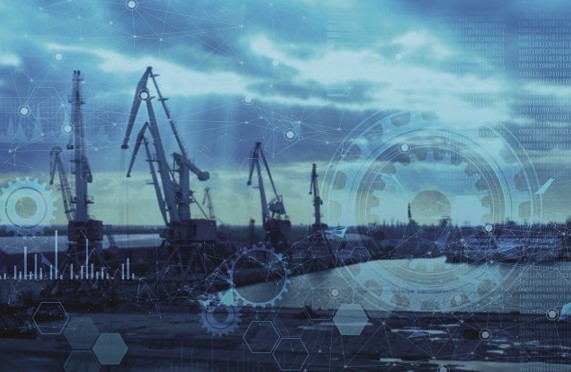
Global maritime shipping is experiencing a period of great turmoil, facing serious dilemmas both regarding the difficult and demanding regulatory framework and the increasing competition, while shipping and vessel management companies, as well as charterers, are obliged to make important decisions for radical changes in their business and operational model and extremely critical strategic decisions for the future of their activity and subsequent investments.
Simultaneously, the requirement to optimise the fuel consumption of cargo vessels and, consequently, the environmental footprint is becoming increasingly urgent and mandatory due to the recent exponential rise in fuel prices and the ever stricter regulatory obligations.
Nevertheless, the revolutionary pioneering development, which brings the 4th revolution in the maritime sector, concerns the exploitation of myriad measurements in real time and the indicating gauges of all machines, equipment, and navigating and measurement devices, such as flow meters, vessel power meters, etc., for thorough analysis using Artificial Intelligence.
The purpose is to draw valuable conclusions and the necessary information that are hidden within the “incomprehensible” for the human mind and extremely complex data. It seems that the proper management of big maritime data will be the sector in which the new era of the industry is being built, providing exceptional innovative and competitive advantages to shipping companies which will immediately become aware and see to prepare and adapt their activities and executives accordingly.
The uninterrupted receipt of data 24/7 from all available sources on board provides a rich, high-resolution realistic picture of the vessel’s performance and not a patchwork of unreliable reports with unstructured, inconsistent datasets as in the past. The immense benefits of collecting and processing reliable automated data in real time add much more than the sum of individual technical, functional and economic units and, of course, should be exploited by those who make the decisions and act accordingly.
The amount of data produced by all kinds of equipment is so large that it is imperative to apply specialised techniques and methodologies for their management, processing, and use and exploitation. Machine Learning, as the dominant technology that represents the general concept of Artificial Intelligence, consists of a massive set of algorithms, tools and techniques, optimised to handle Big Data in a way that mimics the human learning process, but on a multiple scale!
More specifically, the process involves using existing datasets to develop models that are able to easily learn and recognise trends and patterns that could not be observed by the human mind or other mathematical/statistical methods, in order to be able to identify trends and predict future behaviours of all parameters in the near future, for example, fuel consumption to the next port. An important part of the process is that the models train themselves over and over again, thus improving their accuracy and intelligence to an extremely impressive degree.
Therefore, the greatest innovation that this groundbreaking technology is offering, as an invaluable unique competitive advantage to shipping companies, is concerned with the reliable prediction of future behaviours and events.
For example, one can imagine how useful it is to accurately predict the fuel consumption of a particular vessel during the next voyage through a particular route that the vessel will eventually follow, taking into account multiple factors such as the required speed, the revolutions of the engine, the expected weather conditions that will be faced throughout the route, the actual efficiency of the main and auxiliary engines, the current cleanliness of the hull and propeller, etc. This huge advantage can only be provided by the proper use of machine learning technology. The correlation of shaft power as produced by the main engine of a vessel and the actual fuel consumption at various vessel speeds or RPM is not described by any mathematical formula of engineering and science.
These calculations create an excellent tool that upgrades the work of maritime shipping companies, rapidly increases productivity and provides significant help that changes the level in the effective control of operating costs, as well as in monitoring the fulfilment of the regulatory framework.
In practice, the technological applications fuelled by such digital technologies effectively set sustainability as a realistic goal for the maritime community. Each shipowner monitors a wide range of vessel parameters, records thousands of signals, combines data from third-party services (weather providers, AIS, etc.) in real time, and is able to use a ‘digital personal assistant’ that draws valuable conclusions, responds to ad hoc queries and requests of any kind, sends timely and reliable alerts about critical events and prepares custom, adjusted reports per user/department.
The superabundance of data available to the shipping industry poses major challenges. The maritime sector should be willing to digitise its operation and combine maritime know-how, expertise, engineering and scientific knowledge and state-of-the-art digital technologies in the most comprehensive way possible to provide both crew and shipping executives with a clear and realistic target for the rapid upgrade of activity.
METIS Cybertechnology, as a company specialising in the development of digital technological solutions for the global shipping community, is the innovative, pioneering ambassador of the utilisation of the Machine Learning application in the shipping industry. METIS aims at ensuring a comprehensive and reliable process of data collection, real-time performance monitoring and smart analysis, providing useful and applicable information that meets all the needs of different maritime roles, departments and organisational levels of administration in a shipping company.
As the only transparent, consistent from beginning to end platform of the industry powered by Artificial Intelligence, the true value of the METIS solution is cumulative for the efficiency of both individual vessels and the company’s entire fleet. By use of machine learning, the platform is automatically re-evaluated every few days and re-trained monthly to refine and maintain the exact correlation between weather, hull status, generated and axle power usage, fuel consumption and efficiency, and numerous other key parameters. 
Mr Michalis Konstantinidis is co-founder and CEO of METIS Cyberspace Technology SA, mike@metis.tech
Latest News
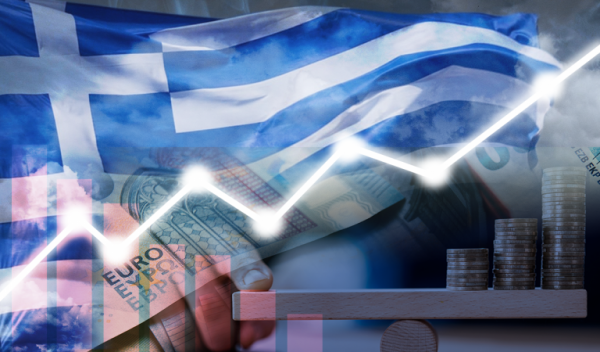
RRF: Additional €5.1bln Funds for Subsidies to Greece in 2025
By April 22, funds totaling 5.75 billion euros had been transferred for approved projects of the Recovery Fund to entities within and outside the general government and final recipients

OECD: Greek Economy Resilient with 2% Growth Forecast for 2024
However, the OECD highlights challenges including the need to enhance productivity and fiscal adjustment due to high debt levels.
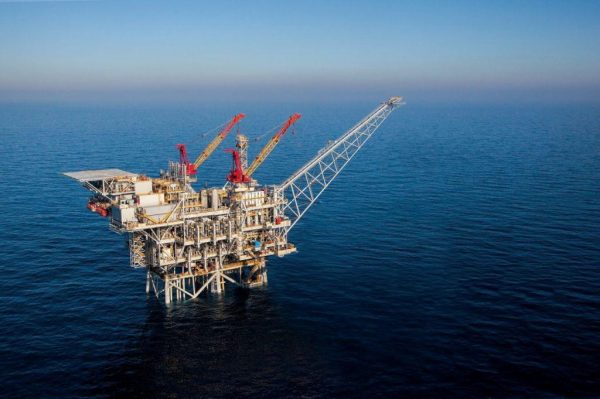
Challenges and Delays in Greece’s Hydrocarbon Exploration
Sources disclose that the petroleum companies holding the concessions are seeking partners to jointly invest and share the costs of exploration and drilling.
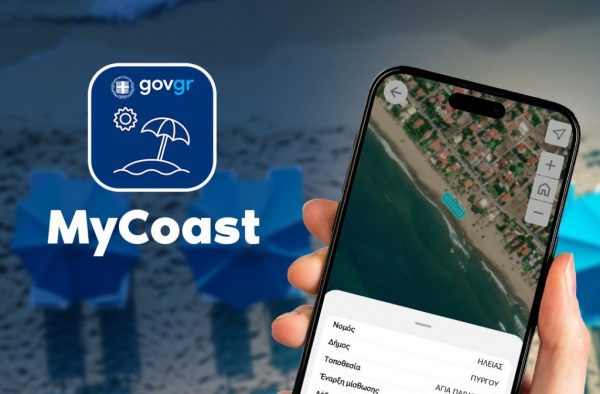
Greek Beach Visitors Can Report Violations on New ‘MyCoast’ App
Greek authorities hope the newly-launched, free ‘MyCoast’ app will help clamp down on public beach violations

BoG Figures Confirm Banner Year for Greek Tourism in 2023
20.6 billion euros in related revenues topped the previous year’s figure by 16.5%

Piraeus Bank to Propose First Dividend in 16 Years
Piraeus Bank has forecast profits of roughly 900 million euros this year, rising to one billion euros next year

Eurostat: Inflation in Greece Eases to 3.2% in April; 2.4% in Eurozone
The rate of increase for food prices was up by 4.9% in April 2024, compared to 4.8% in the previous month

ELSTAT Feb. Retail Turnover Drops by 3.8%, Sales Volume Plummets by 9.8%
Additionally, the seasonally adjusted General Volume Index for Feb. 2024 experienced a 3.8% decrease compared to the previous month of the same year

Greek Buyers Lead Return to Vacation Home Market
In the last six months, Greeks have made a surge into the vacation home market, notably without relying on loans

NBG Receives BBB Investment Grade by DBRS
This makes NBG the first Greek bank to regain Investment grade status, nearly 15 years after the onset of the Greek financial crisis

















![Τουρισμός: Η Αθήνα στις 10 ελκυστικές ευρωπαϊκές πόλεις για ξενοδοχειακές επενδύσεις – Πού υστερεί η Θεσσαλονίκη [πίνακας]](https://www.ot.gr/wp-content/uploads/2022/08/hotel-g0908c6995_1920-90x90.jpg)
![Τουρισμός: Πόσα ξόδεψαν και πόσο έμειναν οι ξένοι επισκέπτες το 2023 [πίνακες]](https://www.ot.gr/wp-content/uploads/2024/02/ot_tourist_santorini2-90x90.png)

![ΤτΕ: Το top10 των περιφερειών με τα περισσότερα τουριστικά έσοδα [πίνακες]](https://www.ot.gr/wp-content/uploads/2024/04/02tourismos10-1-90x90.jpg)











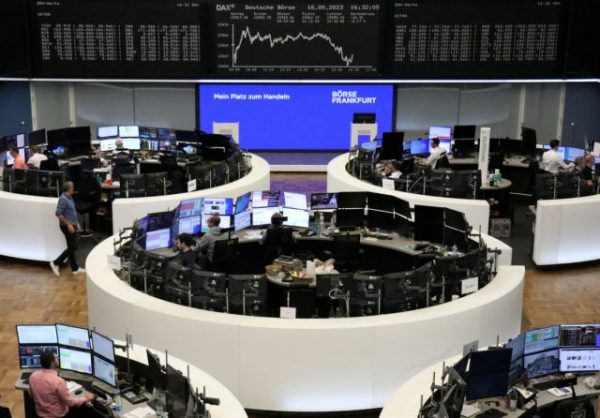

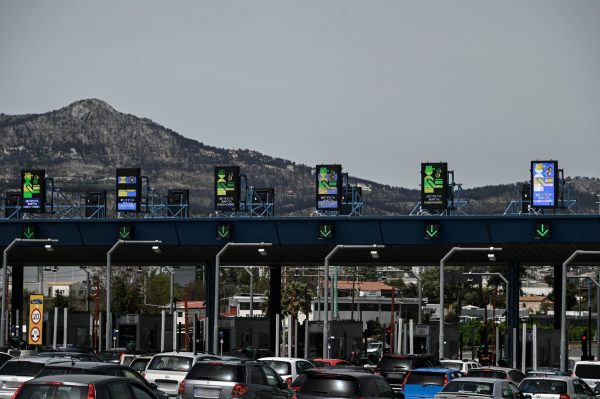

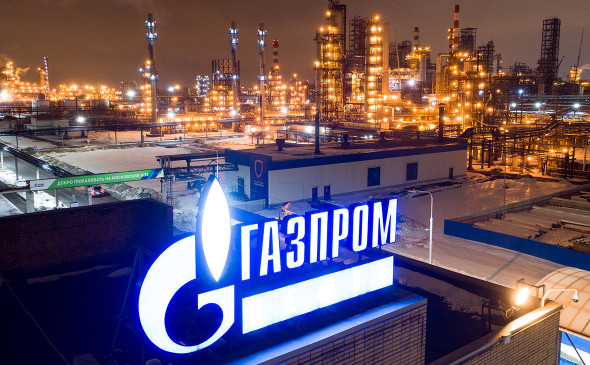

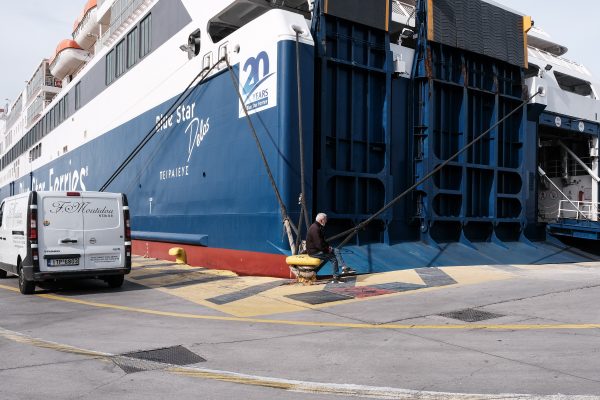





 Αριθμός Πιστοποίησης Μ.Η.Τ.232433
Αριθμός Πιστοποίησης Μ.Η.Τ.232433